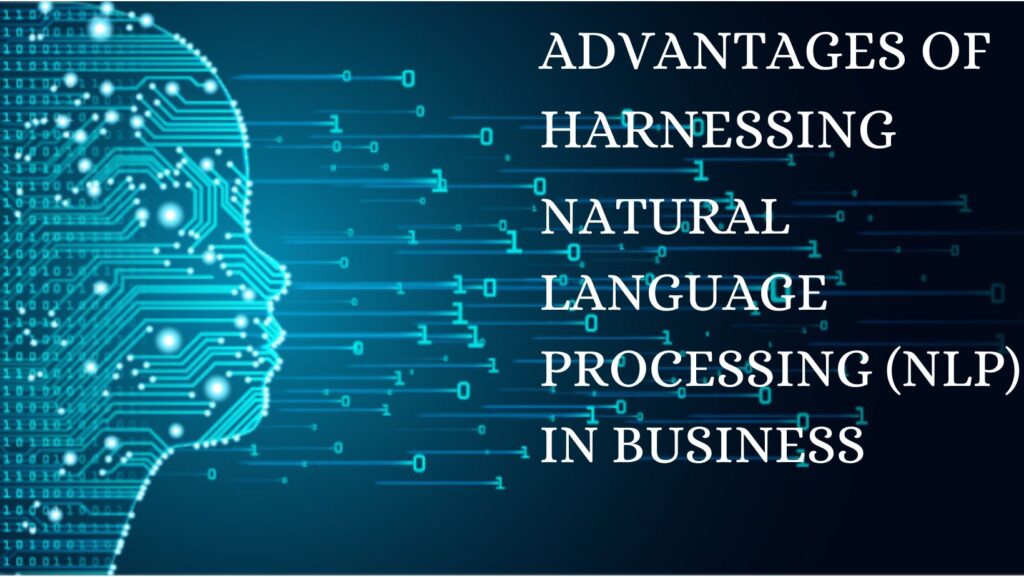
In 2024, businesses worldwide are actively seeking innovative solutions to harness vast amounts of data and elevate their customer interactions. Natural Language Processing (NLP) emerges as a pivotal area of artificial intelligence, seamlessly connecting human communication with machine understanding.
NLP is revolutionizing business practices, data analysis, and customer engagement by enabling machines to comprehend, interpret, and generate human language effectively. This article explores the extensive benefits of integrating NLP into business operations, demonstrating its essential role in maintaining a competitive edge in today’s dynamic business landscape.
Key Advantages of NLP in Business
1. Enhanced Customer Support
NLP facilitates the automation of customer support interactions, enabling instant responses to inquiries through chatbots and virtual assistants. This not only enhances customer satisfaction but also reduces operational costs significantly.
2. Advanced Data Insights
By processing and analyzing large volumes of unstructured data, NLP provides businesses with valuable insights into customer behavior, market trends, and operational efficiencies. These insights empower informed decision-making and strategy formulation.
3. Personalized Content Delivery
NLP technologies customize content based on individual user preferences and past interactions, thereby enhancing engagement and responsiveness. Personalized recommendations and information delivery strengthen customer relationships.
4. Efficient Document Management
From managing emails to handling complex legal documents, NLP automates text-intensive tasks, freeing up employees’ time for more strategic endeavors.
5. Sentiment Analysis
NLP analyzes sentiment from social media posts, customer reviews, and feedback, enabling businesses to gauge public opinion, monitor brand perception, and respond effectively to customer needs.
6. Global Communication Solutions
NLP breaks down language barriers, facilitating seamless content translation and product localization for diverse markets. This expands global reach and enhances customer inclusivity.
7. Voice-Activated Systems
Integration of NLP with voice recognition technologies enables businesses to offer voice-activated services, enhancing user experience and accessibility across various platforms.
Primary Applications of NLP Tools
1. Customer Interaction Automation
NLP-powered chatbots and virtual assistants efficiently handle customer inquiries and support interactions, ensuring timely responses and improving overall service efficiency.
2. Sentiment Monitoring
Businesses leverage NLP to analyze feedback and sentiment across social media and review platforms, guiding proactive adjustments to marketing strategies and product offerings.
3. Email Filtering and Prioritization
NLP algorithms prioritize and filter emails based on content and urgency, optimizing communication flow and ensuring important messages receive prompt attention.
4. Tailored Content Recommendations
NLP-driven systems analyze user behavior to deliver tailored content recommendations, enhancing user engagement and satisfaction on digital platforms.
5. Market Intelligence
NLP tools extract actionable insights from news, financial reports, and industry data, empowering businesses with real-time market trends and competitive intelligence.
6. Multilingual Communication
NLP enables seamless translation and localization of content, enabling businesses to connect effectively with international audiences in their preferred languages.
7. HR and Recruitment Streamlining
In HR, NLP streamlines candidate selection processes by matching job descriptions with resumes and assessing cultural fit based on language nuances.
8. Enhanced User Interaction
NLP integrated with voice recognition technology enhances interactive user experiences through voice-activated commands and services.
Embracing NLP for Future Success
Integrating Natural Language Processing into business operations marks a significant stride towards improved efficiency, personalized customer interactions, and data-driven decision-making. Businesses that leverage NLP to automate communication, analyze sentiment, and personalize content are poised to lead in innovation and customer-centricity.
In conclusion, NLP not only optimizes operational workflows but also drives innovation across diverse sectors. Its transformative impact underscores its indispensable role in shaping the future of business interactions and leveraging data effectively. For those looking to deepen their understanding of data-driven technologies, consider enrolling in a data science course in Delhi, Noida, Gurgaon, and other cities across India. As businesses continue to evolve, embracing NLP promises sustained growth and competitive advantage in a rapidly changing digital landscape.



